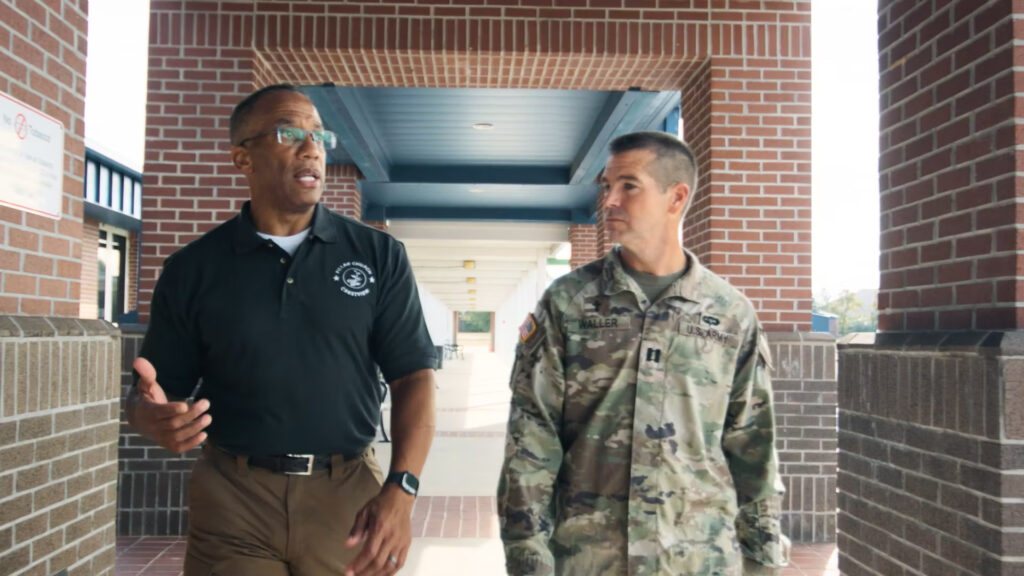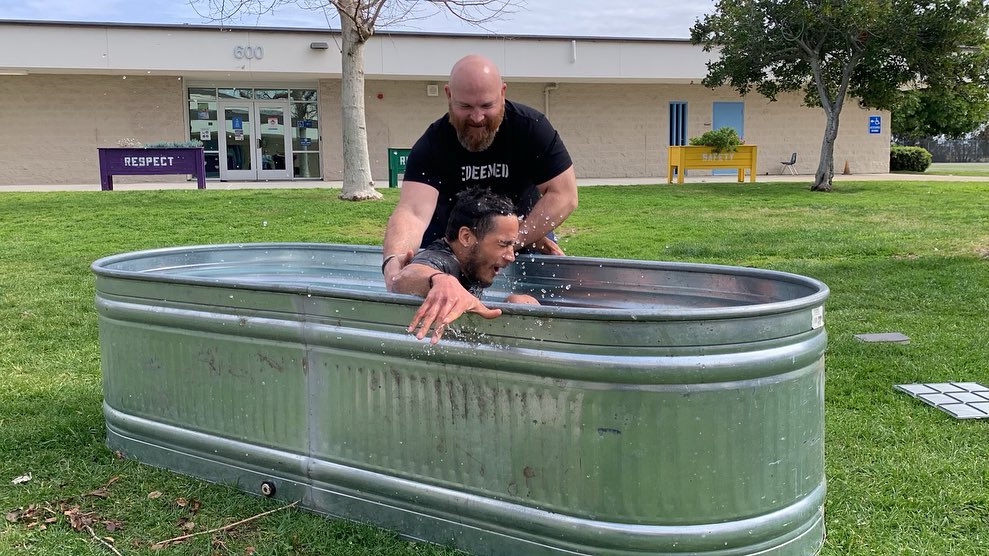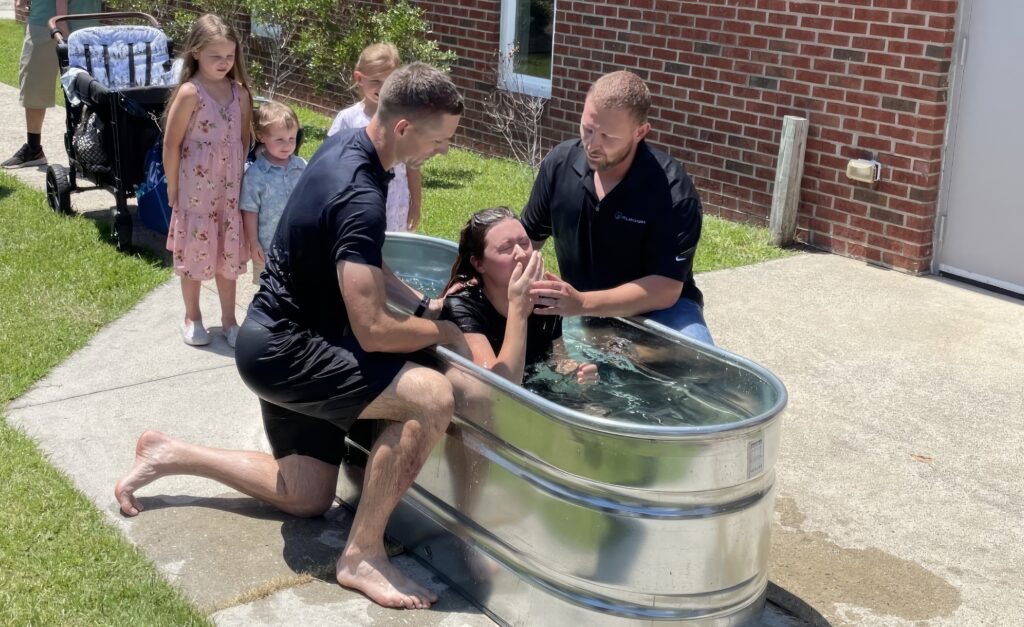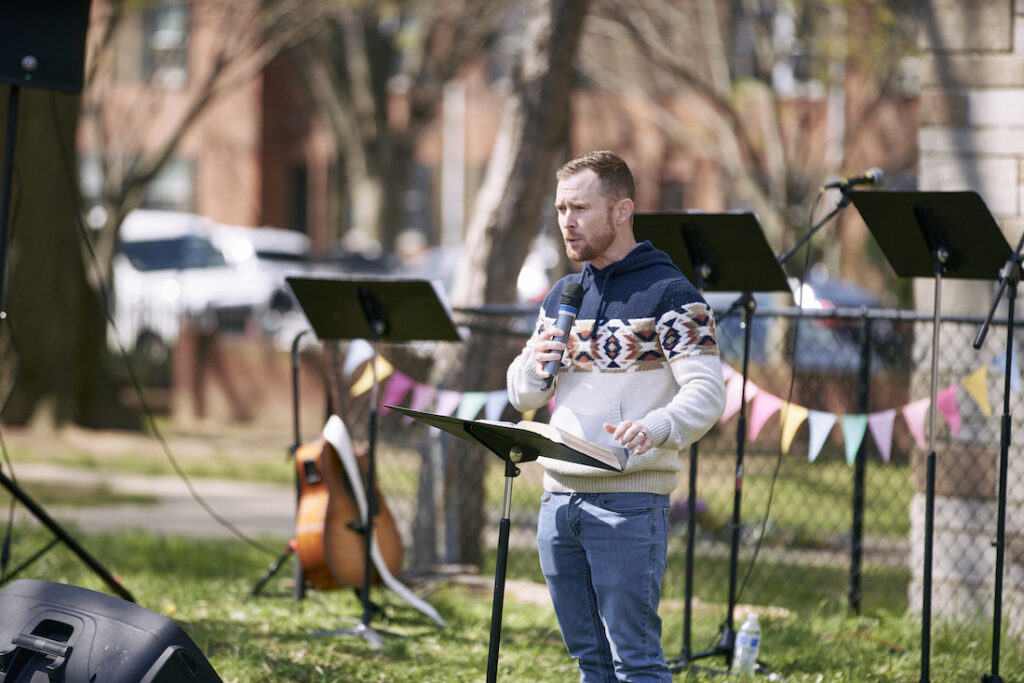4. Embed shared authority into your DNA
Because I believe plurality in church leadership is a core value taught in the New Testament, we instilled this from the beginning. Identifying and training men as elders, developing a staff team, delegating assignments and authority to deacons and other trusted leaders — these are ways to keep the church from becoming all about you.
A serious warning: Plurality is messy. I thought our elder team had this conquered early on, but it wasn’t until a few summers into the church plant that I realized we had miles to go. I confessed my shortcomings in this area to our elders, via a rather long letter (written by the pool of conviction during vacation), promised a new path, and God by His grace has been walking us up that road. But it has not been easy. I still stumble at times. They are trekking with me, sometimes tripping and other times jogging fine. It will be challenging.
But human leadership still is necessary. And there are those elders/leaders with greater reach, those who are “first among equals” in influence. But no one man is the head. Jesus is. And elders lead as one under his authority, not as many with their own authority.
5. Avoid the tendency to copy
This is hard to fight against because it is so prominent today. We see or hear what’s working well and so we deduce that if we copy it, we’ll get it. Not always. Church planting isn’t so much about “xeroxing” a physical formula, but developing a faith family.
Add to this the squeezing demands of time, and church planters can feel very tempted at various points to “reprint” what someone else did. After all, why re-invent the wheel? Well, before you become just another cookie-cutter church plant with a cool name and logo you bought off some website, dig your heels in to the specific place you’re planting and put in the time and work to pursue what God is calling you to specifically. In other words: Create, don’t copy. When I have stayed true to this principle in my leadership, our church fares better. There is less pressure, no comparison, and the health of the body is more evident. Muster up the courage to hear God’s voice for the place and people you lead. In this pursuit, church planting becomes more than a job you hold and, instead, a journey you experience.
6. Think systems, not situations
If you base your decisions on situations, you will always be changing how you do things. This isn’t to say we don’t address things specifically, but rather that we should strive for consistency in the specific decisions/situations. And systems — principles, patterns, and procedures that guide us — are one way you can pursue this well. Whether it’s training leaders, counseling people, or hiring staff, your best avenue for consistency is to think systematically, not situationally.
For instance, how will you handle reports of abuse? Who receives financial help? What initiates church discipline? How are prayer requests disseminated? How are elders/deacons selected? These are the kinds of issues that require systems. And remember: Whether you like it or not, each decision sets a precedent. So if you want to set up good precedents, think systems, not situations.Church planters need to be willing to constantly evaluate not just what needs they are addressing, but how they are addressing those needs. This is the kind of “super-vision” (i.e., seeing beyond the immediate) that pays great dividends over the long haul.
Here’s the good news: You won’t know all the needed systems in advance, so don’t spend countless hours trying to “catch” every possibility or scenario in a policy manual or guidebook before you act. Instead, brainstorm with your team the areas where, in your unique culture, holes are most likely, then move forward with a system based on what you do know, not tabled because of what you don’t know. Act! And when you spot the gaps, address them. I have always been humbly amazed how patiently people work with me when I’m honest about the “holes” in a specific process. It’s when I try to protect the status quo — acting like a broken system has no leaks — that frustrations build within both sheep and shepherds.,
Published August 22, 2018




